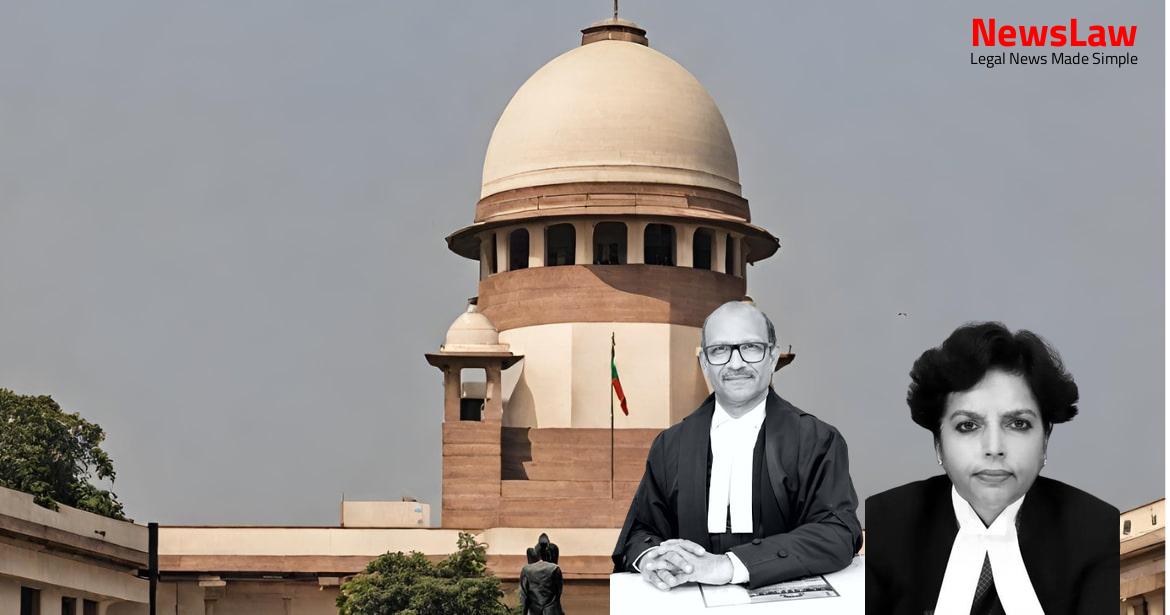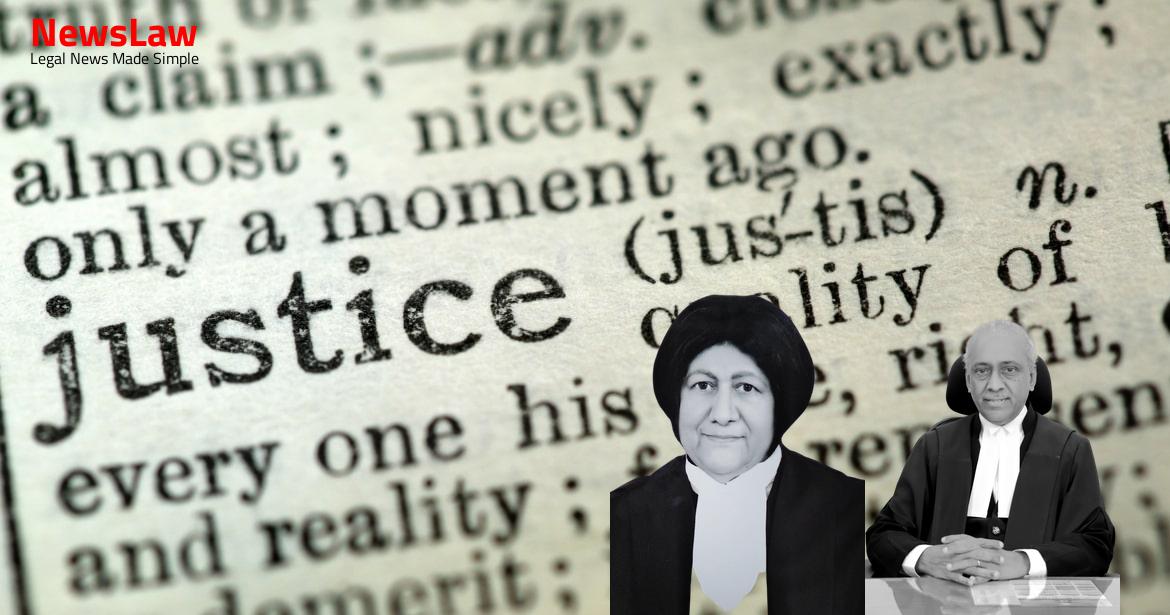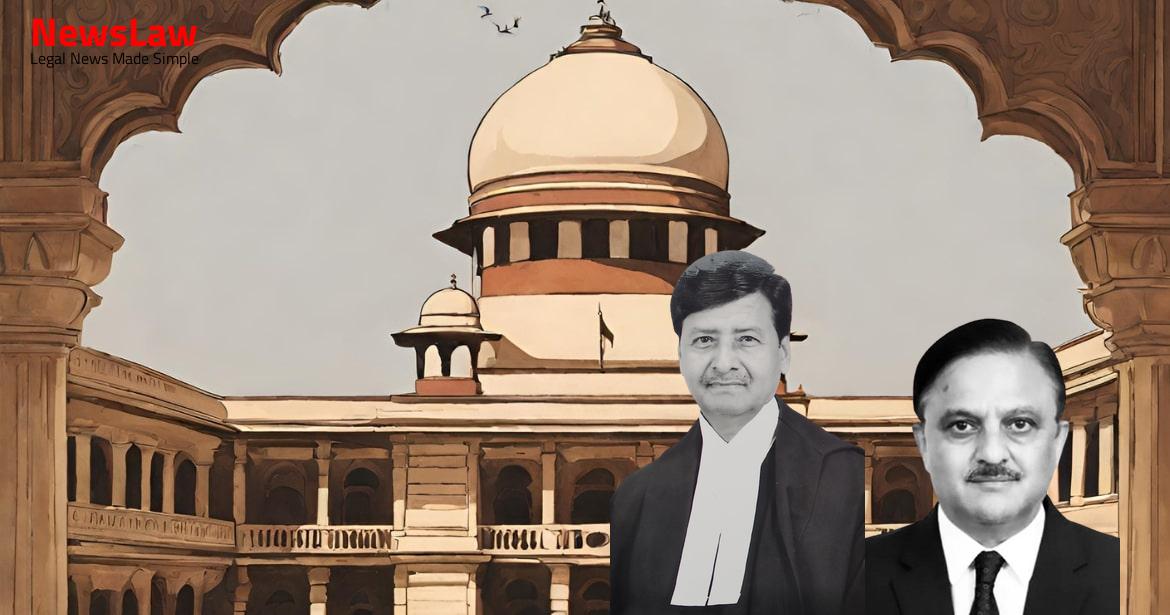In a significant ruling by the Supreme Court of India, a crucial decision has been made regarding pensionary benefits in the SSD Fund case. This judgement ensures fairness and equality for all temporary employees involved in the case, setting a precedent for similar situations in the future.
Facts
- The appellants were not entitled to benefits under the CCS Rules as their salaries were not paid from the Consolidated Fund of India or governed by statutory obligations.
- The services rendered by the appellants did not qualify as government service as no recruitment rules were applicable to them.
- The Delhi High Court rejected the writ petition, affirming the Tribunal’s order, stating that the appellants were appointed for maintaining the SSD Fund, funded through personal contributions by SFF troops.
- The High Court clarified that while SFF troops are government servants, this did not automatically make the appellants government servants.
- The present appeal challenges the High Court’s judgement of April 25, 2017, which upheld the Tribunal’s order rejecting the appellants’ claim for benefits under RP Rules.
- The Tribunal found that the services performed by the appellants were not statutory as they were related to the voluntary SSD Fund contributions made by SFF employees.
- The appellants, who were appointed to manage the Compulsory Saving Scheme Deposits (SSD) Fund of the Special Frontier Force (SFF) in various positions, were denied pensionary benefits under the 6th Central Pay Commission (CPC).
- Their representations seeking pensionary benefits were rejected on the grounds that they were not government employees and were not appointed following any Recruitment Rules, thus the Central Civil Services (Pension) Rules, 1972 did not apply to them.
- Despite receiving various allowances and benefits as per the 4th and 5th CPCs, the benefits of the 6th CPC were not extended to the appellants. Instead, they received an ad-hoc amount of Rs. 3,000/- per month.
- Having filed Original Applications before the Tribunal challenging the non-implementation of 6th CPC benefits and the absence of General Provident Fund provisions in the SSD Fund, the appellants were unsuccessful as the Tribunal held they were not employed in government service.
Also Read: Supreme Court Quashes Reduction in Pay Scale Decision and Recovery Order in Bihar Govt. vs. XYZ
Issue
- Appellants classified as temporary employees of a scheme managed by contributory pooling of funds.
- Question of whether appellants can claim entitlement to pensionary benefits under the 6th CPC.
- Core issue presented for adjudication by the Court.
Also Read: Acquittal of Accused Appellants in Mohmedfaruk @ Palak Safibhai Memon Case
Arguments
- The appellants contended that their case is supported by the principle of ‘equal pay for equal work’ and the right of equal wages emanates from Article 39 of the Constitution of India.
- They argued that temporary employees performing similar duties as regular employees are entitled to equal pay, as established in various court decisions.
- The permanent employees of SFF Accounts working with the SSD Staff perform the same tasks but do not have the same entitlements as regular government employees.
- The appellants’ salaries were increased from the SSD Fund, which is funded by SFF personnel, not government money.
- Limited benefits of 4th and 5th CPC were extended to SSD Fund employees, emphasizing the fund’s objectives.
- The responsibility to regularize employees serving over ten years lies with the State, as per court precedent.
- The appellants have been treated similarly to regular employees of the Accounts Section and are entitled to the benefits and pensionary benefits of the 6th CPC.
- The SSD Fund, introduced in 1964, is a welfare scheme akin to the Armed Force Personnel Provident Fund, and the appellants were granted Assured Career Progression among other benefits.
- Denying pensionary benefits to the SSD Fund staff while granting them to others in the same establishment is deemed discriminatory and arbitrary, violating Article 14 of the Constitution.
- The counsel highlighted the benefits comparison between SSD Fund and SFF permanent employees, arguing for equal treatment.
- The Commandant holds discretionary authority over the SSD Fund regarding pay fixation, not bound by general scales.
- The counsel urged the court to set aside the judgments and grant the appellants the benefits aligned with the 6th CPC, emphasizing the regular nature of their employment and satisfactory service.
- The appellants’ representation was rejected on arbitrary grounds, misleadingly citing lack of strict selection process and non-applicability of CCS (Conduct) Rules.
- The enhancements in pay, allowances, or promotions for SSD Fund employees were carefully dispensed as welfare measures, considering operational needs and financial health of the fund.
- The benefits under the 6 CPC and RP Rules cited by the appellants do not apply to SSD Fund employees, as they are exclusive to Central government employees.
- The appellants’ entitlements were provided based on service and socio-economic conditions, without setting a precedent for future claims.
- Being hired on a temporary basis, the appellants were not subject to probation or annual performance evaluations like Central government employees.
- The recruitment, selection, and promotion processes for SSD Fund employees did not follow the procedures for regular Central government employees.
- The terms of engagement explicitly stated the temporary status of the employees and the possibility of termination without notice.
- Maintaining the distinctions between SSD Fund employees and regular Central government employees is crucial for the fund’s independence and sustainability, which relies solely on contributions from subscribing SFF personnel.
Also Read: Judgment by the Supreme Court Of India: Board of Directors vs Charged Officer
Analysis
- The appellants have served SFF HQ Estt. No 22 for over three decades, indicating a long-term commitment by the government.
- The extension of ACP and alignment of terms with regular government employees highlights the government’s view of them as assets despite their temporary status.
- Legal framework from landmark cases like Ajay Hasia and Pradeep Kumar Biswas guides the analysis of the appellants’ employment status.
- The pay and benefits provided to the appellants align with those of regular government employees, indicating a level of integration into the government’s financial structure.
- Their duties in maintaining the SSD Fund accounts are of public importance closely linked to governmental functions.
- The High Court’s application of Uma Devi’s judgment is deemed inappropriate considering the specific circumstances of the appellants’ employment.
- The continuity in service without clear indication of a temporary nature or duration of engagement prompts a reconsideration of their employment status.
- Transfer of SSD Fund to HQ SFF under governmental control and administrative recognition further support the argument of government service characteristics.
- The denial of pensionary benefits solely based on temporary status overlooks accrued substantive rights through continuous service.
- The continuous increments, promotions, and benefits received by the appellants mirror those of permanent government employees, emphasizing their similarity in employment conditions.
- The consistent theme of deep governmental control over the appellants’ employment terms suggests a formalized employee-employer relationship akin to regular government servants.
- A corporation established by statute or incorporated under law may be considered an instrumentality or agency of the Government.
- Ownership of the entire share capital by the Government plays a significant role in indicating that a corporation is an instrumentality or agency of the State.
- Factors such as financial assistance from the State, public importance of functions, and deep governmental control contribute to classifying a corporation as an instrumentality of Government.
- Tests from the Ajay Hasia case are relevant in determining whether an entity is an instrumentality or agency of the State.
- The nature of financial arrangements and public functions performed are crucial in identifying if a corporation is impregnated with governmental character.
- Proper assessment of relevant factors is necessary to decide if a corporation is an instrumentality or agency of the Government.
- The concept of private action must yield to State action when public functions are being performed by a corporation.
- Denial of pensionary benefits to the appellants is deemed unjustifiable and arbitrary under the law, violating fundamental rights as per Articles 14 and 16 of the Constitution of India.
- The appellants’ batch being the last in their category of SSD Fund temporary employees, extending benefits of the 6 CPC and RP Rules to them will not set a precedent impacting the financial health of the SSD Fund.
- The High Court’s judgment is deemed unsustainable and is set aside following the discussion and analysis presented.
Decision
- Extend benefits of 6 Central Pay Commission to appellants
- Include pensionary benefits under Revised Pay Scale Rules, 2008
- Benefits to be in same terms as peers in Accounts Section of SFF HQ Estt.
- Appeal allowed with no costs
- Pending applications disposed of
Case Title: RAJKARAN SINGH Vs. UNION OF INDIA (2024 INSC 621)
Case Number: C.A. No.-009721-009721 – 2024



